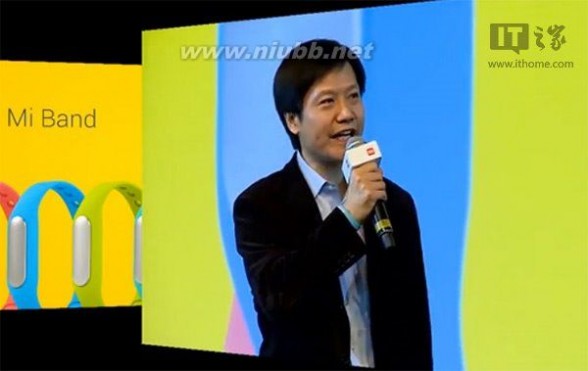一 : Unit 12 You are supposed to shake hands
一 . [话题](topic) tell what you are supposed to do
二 .[重点词组](key phrases)
1. shake hands 2. be supposed to do
3. make some mistakes 4.make plan to do
5. on time 6. after all
7. get angry 8.tabble manners
9. pick up 10.take a drink
11. make noise 12 point out
13. it’s rude to do… 14. have a great time
15.get used to … 16.make appointments
17.make a toast
三 .[交际用语]
1. a: what are you supposed to do when you meet someone?
b: we’re supposed to shake hands / kiss / bow.
2. a: when were you supposed to arrive?
b: i was supposed to arrive on time.
3. you should have asked what you were supposed to wear.
4. you are not supposed to shake hands.
5. spending time with friends is very important.
6. we never visit a friend’s house without calling first.
7. you are not supposed to stick your chopsticks into your food.
四. [重点难点释义](language points) 1a-4
1. you are supposed to shake hands.
be supposed to do… 应该……被期望做……,当句子的主语是人时,它可以用来表示劝告,建议,义务,责任等,意思是 “to be expected to do sth, or to have to do sth.” 如:
you’re supposed to ask the teacher if you want to leave the classroom..
如果你要离开教室,应该先问问老师.
we are not to supposed to play football on sunday.
不准我们在星期日踢足球.
this is secret and i’m not supposed to talk about it.
这是秘密,我不应该谈论
she is late for class again and she is supposed to say sorry to the teacher.
她又迟到了,她应该向老师说对不起.
2. bow
动词,鞠躬,弯腰.如:
bow to the queen.
向女王鞠躬致敬.
at the end of the play all the actors came onto the stage and bowed.
终场时,全体演员都走到台前鞠躬致谢.
he bowed his thanks.
他鞠躬致谢.
2a
3. greet =to welcome or say “hello”,动词,问候,打招呼.如:
he greeted her by saying “good morning”
他象她打招呼说 “早上好”.
she greeted me with a friendly smile.
她向我微笑致意.
a beautiful view greeted us.
美丽的景色呈现在我们面前.
3a
4. where i’m from, we are pretty relaxed about time.
我来的那个地方对时间非常放松.
句子中的 “where i’m from” 是一个由 “where” 引导的地点状语从句.引导地点状语从句的副词除了where 还有wherever.如:
just stay where you are.
就留在你原来的地方.
wherever you are, you can see new factories and stories, new schools and hospitals.
无论你走到哪里,你都能见到新建的工厂,商店,学校和医院.
5. we are the land of watches, after all!
毕竟我们是手表王国.
(1) 句中的land 是一个名词, “国家” “国土”的意思.如:
after living in foreign lands for many years, the man went back home.
在外国居住了多年之后,这个人回到了自己的祖国.
land 还可以表示 “陆地” “土壤” “土地”等意思.如
we traveled by land until we reached the sea.
我们在陆路旅行,一直到大海.
(2)句子中的词组 “after all’’ 意思是 “毕竟”.如:
so you see, i was right after all.
你看,毕竟还是我对吧.
you decided to come after all.
你毕竟还是决定来了.
section b
1. in china ,you’re not supposed to pick up your bowl of rice.
在中国,你不应该端起你的饭碗.
pick up, “捡起;拾起;拿起”.如:
a girl picked up a wallet on her way home.
一个小女孩在回家的路上捡到了一个钱包.
the phone stopped ringing just as i picked up the receiver.
我一拿起听筒,电话就不响了.
pick those things up off the floor!
捡起地板上的东西.
2. in brazil, you should wipe your mouth with your napkin every time you take a drink.
在巴西,每次喝完东西后你应该用餐巾纸擦嘴.
wipe 动词,意思是 “擦,擦去.” 常与away, off, up 连用,表示“擦干净’’.如:
wipe the dirt off your shoes.
抹去鞋上的污泥.
wipe up the milk you spilled, please.
请抹掉洒出来的牛奶.
3. to stick your chopsticks into your food.
把筷子插入你的食物中.
(1) stick 动词, “刺,插入”如:
stick a fork into the meat to see if it’s ready.
将叉插进肉里看熟了没有.
i can’t move. there’s a piece of wire sticking in my leg.
我动不了啦,有一根金属丝刺进我的腿里了.
(2) chopstick 是由 “chop(砍)+stick(棍子)组成的合成词.意思是 “筷子” 它通常以复数形式出现.如
our chinese always use chopstick to eat, but the english don’t use them.
我们中国人通常用筷子吃饭,而英国人不.
(3) 一双筷子是a pair of chopsticks.
4. it’s rude to point at anyone with your chopsticks.
用你的筷子指着别人是很不礼貌的.
(1) rude 形容词,粗鲁的;无理的.
常用词组be rude to sb, 意思是 “对某人无理”如:
it’s rude to interrupt when people are speaking.
打断人家的话是不礼貌的.
i think it was rude of them not to phone and say that they weren’t coming.
他们来不了,也不打电话通知一声,太不象话了.
(2) point 是一个动词,意思是 “指, 指向”.它构成的词组” “point at”意思是 “指向” “对准”.如:
“i’ll have that one.” she said, pointing at a big chocolate cake.
“我想要这个.”她指着一块大的巧克力蛋糕说.
3a
1. table manners
餐桌礼仪.manner 是 “礼貌”的意思,常以复数形式出现.如:
it’s bad manner to talk with a full mouth.
嘴里吃着东西说话是不礼貌的.
manner 还可以表示 “风俗;习惯”时,也常以复数形式出现.如.
the manner of the ancient egyptians 古埃及的风俗习惯
manner 还可以表示 “方法;方式” “态度;举止”等意思.如:
don’t you think that david has got a very arrogant manner?
你难道不觉得戴维的态度很傲慢吗?
why are you talking in such a strange manner?
你为什么用这种奇怪的方式谈话.
2. my biggest challenge is learning how to behave at the dinner table.
我最大的挑战是学会餐桌上的礼仪.
behave 动词,意思是 “行为举止; 举止”如:
the boy behaved very well last night.
孩子昨天晚上表现挺好.
the teacher encouraged the children to behave well and not to be a discredit to the collective.
老师鼓励孩子们表现得好一些,不要给集体丢脸.
the little boy behaved with great encourage in the face of gunman.
在持枪歹徒面前,这个小男孩表现得极有勇气.
它还可以表示 “守规矩;举止适当有礼”的意思.如:
please behave yourself. 请礼貌点儿.
will you children please behave!
你们这些孩子们能不能守规矩点.
它的相应的名词是behavior,意思是 “行为”.如:
i find it useful to learn french.
我发现学习法语很有用.
i think it is possible to finish the work tomorrow.
我想明天有可能结束这项工作.
(3) 词组 get/be used to 意思是 “习惯于……”词组中的to 是介词 其后如果跟动词 动词应该用动名词形式 如 the astronauts soon got used to the condition of weightlessness 太空人很快就习惯了失重状态
i’m getting used to the cold weather.
我开始习惯寒冷的天气.
she gets used to driving a small car.
她习惯开一辆小车.
he will get used to getting up early.
他将习惯于早起.
五.语法知识
现在完成时的用法
have(has)+过去分词
1.现在完成时用来表示现在之前已发生活或完成的动作或状态,但其结果却和现在有联系,也就是说,动作或状态发生在过去但它的影响现在还存在。
i have lost my wallet.(含义是:现在我没有钱花了。)
jane has laid the table.(含义是:已可以吃饭了。)
michael has been ill.(含义是:现在仍然很虚弱)
he has returned from abroad. (含义是:现在已在此地)
2. 现在完成时可以用来表示发生在过去某一时刻的、持续到现在的情况,常与for,since连用。
mary has been ill for three days.
i have lived here since 1998.
3. 现在完成时往往同表示不确定的过去时间状语连用,如already, yet, just, before, recently, lately等:
he has already obtained a scholarship.
i haven’t seen much of him recently (lately).
we have seen that film before.
have they found the missing child yet?
4. 现在完成时常常与表示频度的时间状语连用,如often, sometimes, ever, never, twice, on several occasion等:
have you ever been to beijing?
i have never heard bunny say anything against her.
i have used this pen only three times. it is still good.
george has met that gentleman on several occasions.
5. 现在完成时还往往可以同包括现在时间在内的时间状语连用,如now, up to these few days/weeks/months/years, this morning/week/month/year, now, just, today, up to present, so far等:
peter has written six papers so far.
man has now learned to release energy from the nucleus of the atom.
there has bee too much rain in san francisco this year.
the friendly relations and cooperation between our two countries have been enhanced in the past few years.
up to the present everything has been successful.
6. 现在完成时表示现在之前业已完成的动作,虽然其效果或影响仍然存在但已不再继续,但是有一些现在完成时的句子,在后面加上for+一段时间,则现在完成时的动作就表示延续性。
thomas has studied russian. (现在不再学俄语)
thomas has studied russian for three years. (=thomas began to study russian three years ago, and is still studying it now.(同第2点用法第一个例句)
7. 现在完成时还可以用来表示过去的一个时间到现在这段时间内重复发生的动作。
we have had four texts this semester.
二 : 王思聪致歉雷军:Are you OK?要翻译私信我
IT之家讯 4月27日消息,小米新品小米4i近日在印度吸引了大量当地米粉的关注,而雷军的雷氏现场英文演讲也在中国互联网圈彻底火了。(www.61k.com]对于雷军在异国的表现,舆论褒贬不一,其中最吸引人关注的要数万达集团董事王思聪在微博上的吐槽:丢脸。不过今天中午王思聪就此言论向雷军致歉。
对于雷军在印度新品发布会上的演讲,王思聪直言:其实英语不好的企业家我真建议你们就干脆别出国丢这个脸了。此言一出直接将原本就火得一塌糊涂的雷氏演讲的意义提升到了一个新的高度。对此网友有力挺,也有批评:毕竟王思聪的成长环境要比雷军优越得多。
王思聪同学今天再度发声:对昨晚关于雷布斯的微博致歉,毕竟上一代的企业家没有我们这代人的条件。雷总,Are you OK?下次需要翻译你私信我。虽说是道歉,为什么有一种补刀的感觉?

而上一代企业家雷军则并未对王思聪的言论做出直接回应,只是在自嘲英文水平不过关的同时喊出了“把英文学好”的口号。

近年来随着中国互联网企业的崛起,登陆纳斯达克、举行国外发布会成了业内的家常便饭,这其中少不了领导人的登台发言,但毕竟不是每个企业家都是马云、罗永浩式的英语教师出身,大家不妨多给企业家们一些时间,万一人家成为黄晓明第二呢?
三 : 新神曲诞生:雷军飚英语《Are You OK》火了
众所周知,在上周的小米印度新品发布会上,雷军在现场的英语演讲一度成为网友关注的焦点。[www.61k.com]对此,雷军本人也是颇感意外,而更让人意外的是,就连国民老公王思聪也掺和进来了。不过随着时间的推移,这事的热度也慢慢降了下来,但是现在,它又火了。

据了解,有哔哩哔哩弹幕网大神将雷军当时的英语演讲进行了剪辑制作,然后魔性神曲《Are You OK》横空出世,单曲循环完爆小苹果、滑板鞋和最炫名族风有没有,根本停不下来有没有!!!
附视频:雷军单曲《Are You OK?》(IT之家移动客户端用户若无法观看视频,请点此查看)
本文标题:are you ok-Unit 12 You are supposed to shake hands61阅读| 精彩专题| 最新文章| 热门文章| 苏ICP备13036349号-1